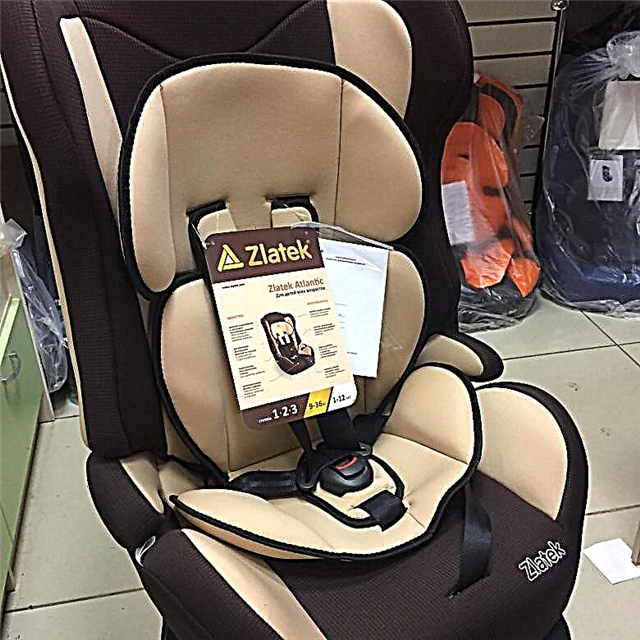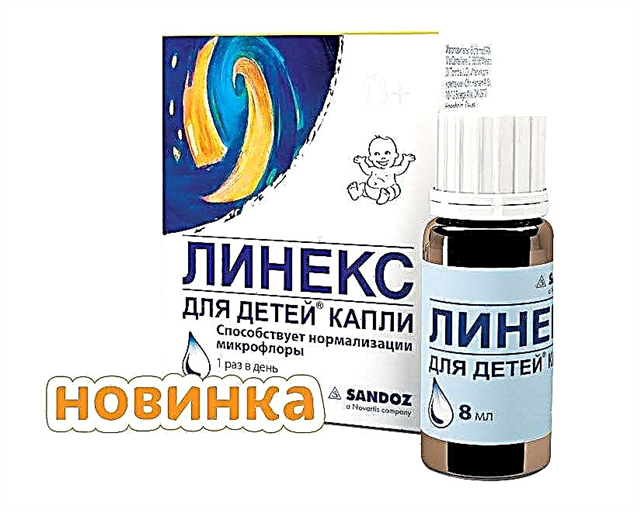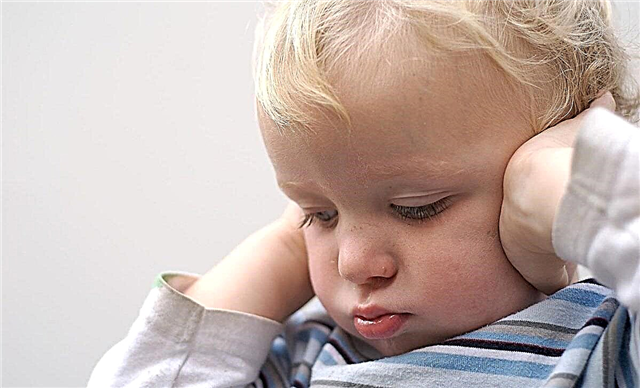"Mom, my stomach hurts!" Is one of the most common complaints of children at any age. Babies who have not yet mastered speech skills express pain by crying, whining, bending their knees to their chest. Unfortunately, often mothers, not understanding the causes of the disease, simply stuff the child with analgesics and antispasmodics.

Discomfort and pain in the abdomen is a serious signal for a fragile child's body that it needs help. The pain can be caused by the simplest indigestion, or it can be one of the manifestations of a serious illness that requires prompt medical attention. Therefore, it is so important to be able to carry out the initial diagnostics in time and alleviate (and not harm!) The child's condition before the arrival of doctors.
Remember that severe abdominal pain is a reason for an emergency visit to a doctor!
Causes of abdominal pain and accompanying symptoms
Abdominal pain can be short-term and long-term, sharp and weak, in the area near the stomach or throughout the abdomen, but the main rule in this situation is that you cannot wait until the pain becomes unbearable, and if it is not heaviness from too much dinner , you need to immediately call a doctor.
The most common causes of abdominal pain in a child are:
- Colic
Usually babies up to 3-4 months old suffer from them. The baby squeezes his legs, starts screaming, turns and strains. The pain is relieved by a heated diaper on the stomach or the use of dill water. You can try to vilify the crumb with a column. For particularly excruciating pain, when the child does not sleep at night, the pediatrician prescribes a special medicine. For example, Espumisan, Bobotik, Plantex. (how to help a child with colic)
- Constipation
In this case, bloating of the intestines also joins the colic. Usually, you cannot do without an enema (how to make an enema for a newborn child) or a special candle (glycerin or sea buckthorn). (constipation in a newborn - how to help)
- Crick
It manifests itself in the form of sharp and sharp pain when walking or when trying to sit up straight. It is the result of severe physical exertion, sometimes manifests itself after vomiting or severe coughing. In addition to pain, the child is not worried about anything, he has a normal appetite and a normal state.
- Intestinal obstruction
Typical for babies aged 5-9 months. Requires an urgent visit to the surgeon. Concomitant symptoms are nausea, vomiting, blood in the stool.
- Flatulence (bloating) and gas
The child becomes moody and nervous, does not sleep well. During feeding, the baby may greedily grab the breast or nipple and then spit it out abruptly. After feeding, regurgitation, belching may occur. Quite often, flatulence is a sign of other more serious conditions.
- Worms
Usually these are roundworms. The pain is not as severe as with colic or constipation, but it manifests itself regularly. Additional symptoms are headaches, flatulence, itching in the anus. It is a mistake to believe that teeth grinding in a dream is associated with worms in the body.
- Intolerance to any product
Lactose intolerance (milk and dairy products) is most common in children. The malaise begins 30 to 40 minutes after consuming the product. In addition to pain, the child suffers from bloating, diarrhea, and sometimes vomiting. The pains are in the nature of colic or cramping.
- Jaundice
The disease is quite serious and contagious. Severe pain is localized in the liver. In a child, the sclera of the eyes turn yellow, the urine becomes dark. The disease requires urgent medical attention. (jaundice in newborns)
- Inflammation of the testicles
Usually, the child feels pain in the lower abdomen with a return from the scrotum. Inflammation can be triggered by testicular torsion, hernia, or a simple bruise. It is important to provide qualified medical care.
- Pyelonephritis
This disease is common in girls. Acute and rather severe pains are localized in the lower back, side, lower abdomen. They are usually accompanied by fever, headache, weakness, increased sweating, chills, nausea, and vomiting. The disease is very serious, it is caused by inflammation of the renal pelvis. The cause may be bacteria entering the urinary system or impaired outflow of urine from the kidneys. The disease is susceptible to drug treatment, but in especially difficult situations there is no other way out except for surgical intervention.
- Gastroenteritis
The disease is characterized by inflammation of the lining of the stomach and small intestine caused by viruses, parasites or bacteria. The pain is paroxysmal, dull. Additional symptoms are stomach rumbling, diarrhea, nausea, vomiting, fever. At the slightest suspicion of gastroenteritis, an urgent need to consult a pediatrician.
- Appendicitis
Appendicitis is an inflammation of the appendix of the cecum called the appendix. It usually occurs on 1 of 6 children. And up to two years, as a rule, it does not worsen. Most often, the disease affects children between the ages of 8 and 14 years. At first, the appearance of aching dull pain in the right or lower abdomen, loss of appetite, weakness, vomiting, fever is characteristic. Further, sharp cutting pains occur and perforation of the appendix wall rapidly develops. All of its contents pass into the peritoneum, which poses a serious risk to the child's life. An urgent operation is indispensable. (appendicitis)

Symptoms for an urgent ambulance call
- A child under 5 years old, the pain does not go away for more than 3 hours. The kid is naughty and nervous.
- Abdominal pain is accompanied by rashes on the baby's skin or joint inflammation.
- With abdominal pain, concomitant diarrhea, fever, severe nausea, or persistent vomiting.
- The pain is localized in the umbilical area.
- The child refuses food and water due to abdominal pain.
- Severe abdominal pain after falling or hitting the abdomen.
- The pain is accompanied by weakness, pallor, loss of consciousness.
- The pain occurs at night.
- Abdominal pain and lack of stool.
- Regular pain lasting more than 2 weeks.
- Frequent abdominal pain and weight loss (or developmental delay).
- Frequent pain that recurs regularly over several weeks / months (even in the absence of other symptoms).
Doctor Komarovsky tell you when a doctor is urgently needed for abdominal pain in a child:
Stomach hurts - first aid
The good news is that quite often painful sensations are caused by indigestion or improper nutrition, which is harmless and easily passes after the causes of the occurrence are eliminated. If the pain is getting stronger and other signs inherent in certain diseases are added to it, you cannot hesitate to call a doctor.
First aid before the arrival of the doctor
- If you are not a physician with an initial diagnostic ability, do not give your child any medication. They can harm or "blur the picture" of the disease, making it difficult for a doctor to diagnose;
- Do not feed your baby, but provide plenty of fluids, especially for vomiting and diarrhea. You can drink Regidron, a self-prepared water-salt solution, or still water (lemonade, juices and milk are prohibited!);
- Monitor the temperature. When it rises above 38 ° C, you need to give the baby an antipyretic;
- It is very important not to put a heating pad or a heating compress on your stomach. Heating provokes an inflammatory process and the child's condition can deteriorate sharply;
- If you are sure that bloating is the cause of the pain, give the person a simethicone-based medicine;
- Make sure your child is not constipated. Regardless of the result, it is impossible to do an enema before a professional diagnosis by a doctor;
- If your tummy hurts, your temperature rises, and vomiting or watery / foul-smelling diarrhea begins, get ready to treat an intestinal infection (most often it is she who hides under such symptoms.
Attention!
The lion's share of the most dangerous diseases hidden under severe abdominal pain and, as a rule, requiring the intervention of a surgeon, are not accompanied by subfebrile condition! Fever is usually a "companion" of infections.
If you have the slightest doubt, call a doctor - do not delay with qualified help. No matter what "business" awaits you, no matter how the child of doctors is afraid, call an ambulance without hesitation! Better to be safe than sorry.
Functional pain - how can you help your child?

Children aged about 7-15 years often have so-called functional pains - in fact, it is not clear what caused, by the nature of the manifestations, similar to migraines. They are usually referred to as pain that is completely unrelated to surgery or infection. Even a deep examination does not find the cause of the pains, but despite this, they are not a figment of children's imagination, so as not to go to school or put away toys. Children really suffer from them.
Functional pain can be caused by:
- Overwork;
- Stress or nervous strain;
- Functional dyspepsia (disruption of the stomach, painful digestion);
- Irritable bowel syndrome (disruption of the gastrointestinal tract without any organic cause);
- Abdominal migraine (abdominal cramps, accompanied by headache, pallor, nausea and vomiting) - as the child grows up, the disease turns into migraine headaches.
Functional pains are not dangerous and do not carry health risks; over time, they cease to occur (they do not require specific treatment). However, proper care is essential for children with these pains. To alleviate the child's condition will help:
- Calm and care from loved ones. Create a pleasant and comfortable atmosphere of kindness and safety for the child. Don't allow yourself negative emotions;
- Diet. It is scientifically proven that the introduction of cereals, vegetables, fresh fruits and dried fruits into the daily menu will help alleviate symptoms;
- Medicines. With severe pain, you do not need to force the child to endure discomfort. You can give mild analgesics: ibuprofen or paracetamol;
- Illness diary. Recording observations will be useful for anamnesis and understanding "where the legs grow from". The period of pain (how long it lasts), the means of easing it (with what you remove) and situations in which pain occurs should be recorded.
Consultation with a specialist: What to do if a child has a stomach ache
[sc name = ”rsa”]
Dudchenko Polina. Family doctor, neonatologist, breastfeeding consultant:
The child has a stomach ache - School of Dr. Komarovsky
Abdominal pain sooner or later, often or rarely, but occurs in any child. And the question arises before the parents: is it dangerous or not, what to do with it; when should you go to the doctor immediately, and when can you be patient? TV presenter Yanina Sokolova is no exception, she is also very worried about these questions, and she came to Dr. Komarovsky to understand this topic:



